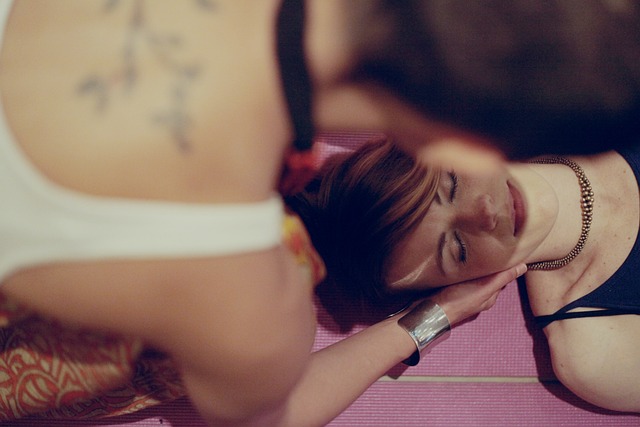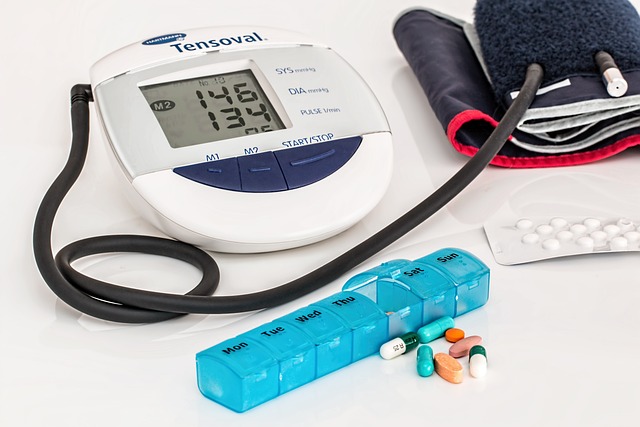Group programs emphasizing holistic injury recovery integrate physical care with mental support through tailored physical therapy programs. These include mobility restoration exercises, pain management strategies, and muscle-strengthening routines guided by professionals. Post-injury rehabilitation benefits from group settings fostering community, emotional resilience, social interaction, and encouragement, alongside sports injury recovery plans focusing on preventing future injuries through injury prevention tips.
“Unleash your recovery potential with the power of group support! This comprehensive guide explores the transformative impact of group programs tailored for optimal injury recovery and physical care. From understanding the benefits of collective healing to delving into specialized physical therapy and post-injury rehabilitation, we cover it all. Discover how these programs facilitate mobility restoration exercises, pain management strategies, muscle strengthening routines, and even offer valuable injury prevention tips for long-term wellness, whether you’re recovering from a sports injury or seeking everyday life solutions.”
- Understanding Group Programs for Optimal Recovery
- Physical Therapy and Care: A Team Approach to Healing
- Tailoring Rehabilitation: From Sports Injury to Everyday Life
- Preventing Recurrence: Strategies for Long-Term Wellness
Understanding Group Programs for Optimal Recovery

Group programs offer a powerful and effective approach to optimizing the recovery process for individuals dealing with injuries, focusing on both physical care and mental support. These programs are designed to facilitate a holistic healing journey, addressing various aspects of an individual’s well-being. By bringing people together who share similar experiences, group settings create a sense of community and belonging, which is essential for emotional resilience during rehabilitation.
Injury recovery and physical care within these programs often involve tailored physical therapy routines, including exercises for mobility restoration and pain management. Trained professionals guide participants through customized plans, ensuring gradual progression to enhance overall function. Additionally, group activities promote social interaction, encouraging members to share their journeys and offer encouragement, fostering a supportive environment that complements traditional sports injury recovery plans.
Physical Therapy and Care: A Team Approach to Healing

In many cases, a comprehensive approach to recovery involves a collaboration between medical professionals and physical therapists. Physical therapy plays a pivotal role in the injury recovery process, focusing on restoring mobility, enhancing flexibility, and strengthening muscles. These tailored programs are designed to address specific needs, offering a wide range of techniques from gentle exercises to advanced rehabilitation methods. The goal is not just to heal but to prepare individuals for an active lifestyle, ensuring they can return to their favorite activities with reduced risk of future injuries.
Effective physical care goes beyond immediate healing. It includes education on injury prevention tips and the implementation of strategies for effective pain management. By combining mobility restoration exercises with targeted muscle strengthening routines, patients gain functional abilities and build resilience. This collaborative team approach ensures a smoother transition from rehabilitation to daily life, empowering individuals to take charge of their health and well-being.
Tailoring Rehabilitation: From Sports Injury to Everyday Life

In today’s world, tailored rehabilitation plays a crucial role in helping individuals navigate their recovery journey, from sports injuries to everyday life challenges. Effective physical care and therapy programs are designed to go beyond treating the immediate injury, focusing on holistic healing that includes mobility restoration exercises, pain management strategies, and muscle strengthening routines. These comprehensive approaches ensure that clients regain functionality and independence while minimizing the risk of future injuries.
Specialized physical therapy programs cater to diverse needs, offering customized sports injury recovery plans that address specific muscle groups and movements affected by the trauma. By incorporating evidence-based practices and injury prevention tips, these programs empower individuals to take control of their well-being. Whether recovering from a sprain, strain, or more severe sports injury, tailored rehabilitation prepares clients for a smoother transition back to active lifestyles, fostering resilience and enhanced physical capabilities.
Preventing Recurrence: Strategies for Long-Term Wellness

Preventing Recurrence is a crucial aspect of long-term wellness in the context of injury recovery and physical care. Incorporating tailored strategies, such as structured physical therapy programs and post-injury rehabilitation plans, can significantly reduce the risk of re-injury. Sports injury recovery often involves a multifaceted approach—from mobility restoration exercises to pain management techniques and targeted muscle strengthening routines. These comprehensive methods not only aid in healing but also educate individuals on maintaining their well-being.
Additionally, integrating injury prevention tips into daily routines can be transformative. This includes adopting a consistent exercise regimen, focusing on proper form during activities, and incorporating stretching and warm-up exercises before engaging in strenuous physical activities. By combining these strategies with professional guidance, individuals can effectively manage their recovery and foster a sustainable, healthy lifestyle, minimising the chances of future injuries.
Group programs offer a comprehensive and supportive environment for navigating the injury recovery journey. By combining physical therapy, tailored rehabilitation exercises, and effective pain management strategies, these programs enhance mobility restoration and muscle strengthening. With a focus on both sports-specific and everyday life applications, participants gain valuable tools to prevent recurrence and foster long-term wellness. Incorporating group support ensures individuals feel empowered and motivated throughout their recovery process, ultimately contributing to improved outcomes and enhanced quality of life.
